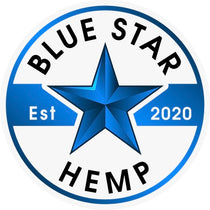In the realm of cannabis, two compounds reign supreme: THC (tetrahydrocannabinol) and CBD (cannabidiol). As society's perception of cannabis undergoes a transformation, propelled by legalization and increased scientific scrutiny, it's paramount to delve into the intricate differences between these cannabinoids. From their distinct effects on the body to their diverse therapeutic potentials, understanding THC and CBD is essential for anyone navigating the landscape of cannabis consumption.
THC: Unraveling the Highs
THC stands as the poster child of cannabis, notorious for its psychoactive prowess. Upon consumption, THC binds to cannabinoid receptors in the brain, predominantly CB1 receptors, triggering a cascade of neural alterations that culminate in the sensation of being "high." This euphoric state, characterized by shifts in perception, mood elevation, and altered cognition, forms the allure for recreational cannabis users worldwide.
Beyond its recreational allure, THC harbors therapeutic promise. Studies showcase its efficacy in alleviating symptoms of various conditions, including chronic pain, nausea, and muscle spasms. Medical cannabis regimes leverage THC's properties to provide relief to patients grappling with debilitating ailments. However, its intoxicating effects render it unsuitable for individuals averse to altered states of consciousness or those facing occupational constraints tied to drug testing.
CBD: The Tranquil Counterpart
In stark contrast, CBD emerges as the serene counterpart to THC's intoxicating fervor. Operating via distinct pathways, CBD interacts with cannabinoid receptors, modulating neurotransmitter systems without inducing a high. This non-intoxicating nature makes CBD an attractive option for individuals seeking therapeutic benefits sans the psychotropic effects associated with THC.
The therapeutic potential of CBD spans a broad spectrum, with research indicating its efficacy in mitigating anxiety, inflammation, and even certain seizure disorders. Moreover, CBD exhibits a favorable safety profile, with minimal reported adverse effects, positioning it as a versatile tool in the realm of holistic wellness.
Unveiling the Entourage Effect
The allure of cannabis extends beyond the isolated effects of THC and CBD, encapsulating the concept of the entourage effect. According to this theory, the synergistic interplay between various compounds within the cannabis plant, including cannabinoids, terpenes, and flavonoids, enhances the therapeutic efficacy of individual components. Thus, the combination of THC and CBD, alongside other plant constituents, may yield nuanced effects that surpass those observed in isolation.
Legal and Regulatory Dynamics
The legal landscape surrounding THC and CBD mirrors the complexities of cannabis regulation. While THC remains classified as a controlled substance in many jurisdictions due to its psychoactive nature, CBD, particularly when derived from hemp, has garnered legal acceptance for medical and even recreational use in numerous regions. However, navigating the intricacies of cannabis legislation necessitates vigilance and awareness of evolving regulatory frameworks.
Conclusion: Embracing Nuance in Cannabis Understanding
In conclusion, THC and CBD epitomize the multifaceted nature of cannabis, each offering distinct experiences and therapeutic potentials. From THC's intoxicating highs to CBD's tranquilizing effects, navigating the realm of cannabis necessitates an appreciation for the nuances underlying these cannabinoids. As society embraces a more enlightened perspective on cannabis, fueled by scientific inquiry and legislative reform, understanding the intricacies of THC and CBD serves as a cornerstone for informed decision-making in cannabis consumption, whether for medicinal relief or recreational indulgence. As research progresses and societal attitudes evolve, the journey of unraveling the mysteries of cannabis promises to yield profound insights into the complex interplay between plant chemistry and human physiology.
